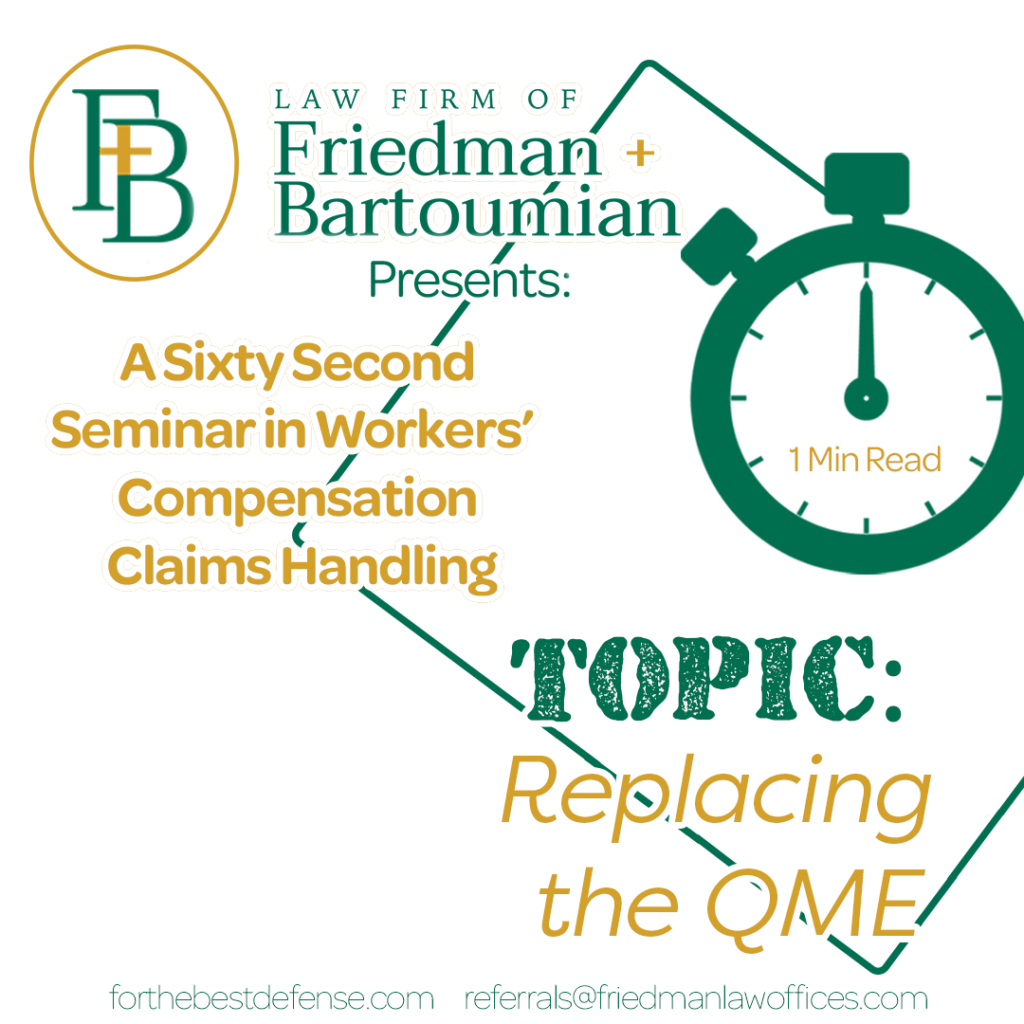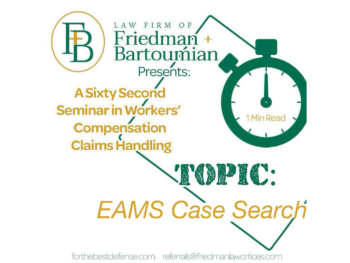
We are continuously bemused at the frequency with which a newly hired applicant attorney will attempt to replace a QME permissibly chosen when an applicant was unrepresented by counsel. The purpose of today’s blog is to warn our clients of the various tactics some applicant attorneys use to avoid a good defense QME report.
There are only two tracks that lead to a QME evaluation. The first track is used exclusively by applicants represented by counsel, while the second track is dedicated to non-represented injured workers. The only time an employee may switch tracks is before a QME evaluation has occurred. Once a QME has examined the injured worker, that physician is the QME for the remainder of the claim, regardless of if the worker later retains or terminates counsel. Therefore, if an injured worker hires an attorney after a QME examination, the employee is not entitled to a new QME. On the other hand, should an injured worker retain counsel before the actual QME examination has occurred, the employee may switch tracks and obtain a new panel. In addition, any previous panel issued while the injured worker was unrepresented is automatically invalidated upon hiring of counsel.
Whenever an applicant attorney adds a body part to an existing claim, thus requiring a second med/legal evaluation to determine compensability, the injured worker should return to original QME for assessment. Based on mutual agreement or upon showing of good cause counsel may attempt to persuade a WCJ to allow a secondary QME in a different medical specialty. Rule 31.7 specifically allows for this. If a secondary QME examination in a different medical specialty is granted, then the employer’s cover letter should make it clear to the secondary QME that their role is limited to examination and discussion of the newly added body part(s), only.
Another opposition tactic often seen involves a proposal for an AME. Whenever injury AOE/COE is denied based on the QME’s opinion, or when a QME’s findings are unacceptable to an unrepresented worker, it is quite common for the employee to angrily react by retaining counsel. The newly hired attorney may offer an AME under the guise that the QME failed to address all issues. Claims representatives – do not be duped! A claims examiner is not required to agree to an AME. It would be foolhardy to do so, especially when the administrator possesses a favorable QME report supporting denial of liability or establishing a low threshold of PD. Should counsel assert the QME failed to address all issues, simply seek a supplemental report rather than agree to an AME. The last thing an administrator wants to do is have a favorable QME report trashed!


 Pre-Designation: A Sixty-Second Seminar in Workers’ Compensation Claims Handling
Pre-Designation: A Sixty-Second Seminar in Workers’ Compensation Claims Handling
Leave a Reply